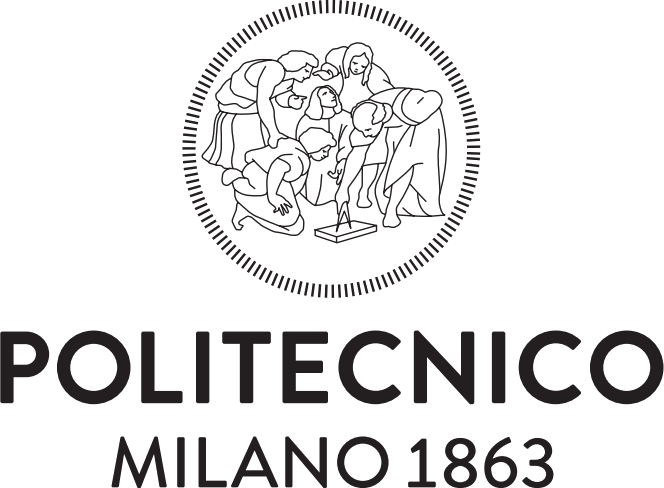ZERO CARBON
THE PROJECT
The “Zero Carbon” project aims to fight and reduce health, environmental and social impacts caused by the use of traditional cooking methods. This can be achieved by the introduction of improved cookstoves built with locally available material.
sectors of
intervention

Energy and health
Location
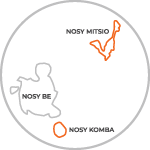
Nosy Komba and Nosy Mitsio,
Madagascar
Donors
partners
beneficiaries

duration

May2019 – On going
THE problem
The most widespread cooking method in rural Madagascar is the “open fire”. This rudimentary method, characterized by low energy efficiency and high pollutant emissions. It is often practiced inside homes with no ventilation systems, endangering the health of women and children due to the prolonged exposure to combustion fumes. Respiratory infections caused by traditional cooking methods are the second leading cause of mortality in Madagascar.
Furthermore, the widespread use of firewood and charcoal as fuel has huge environmental impacts as it contributes to deforestation, which severely threatens biodiversity and ecosystems.
Finally, the burden and time spent on fuel collection and production also has significant social impacts, especially for women and children.
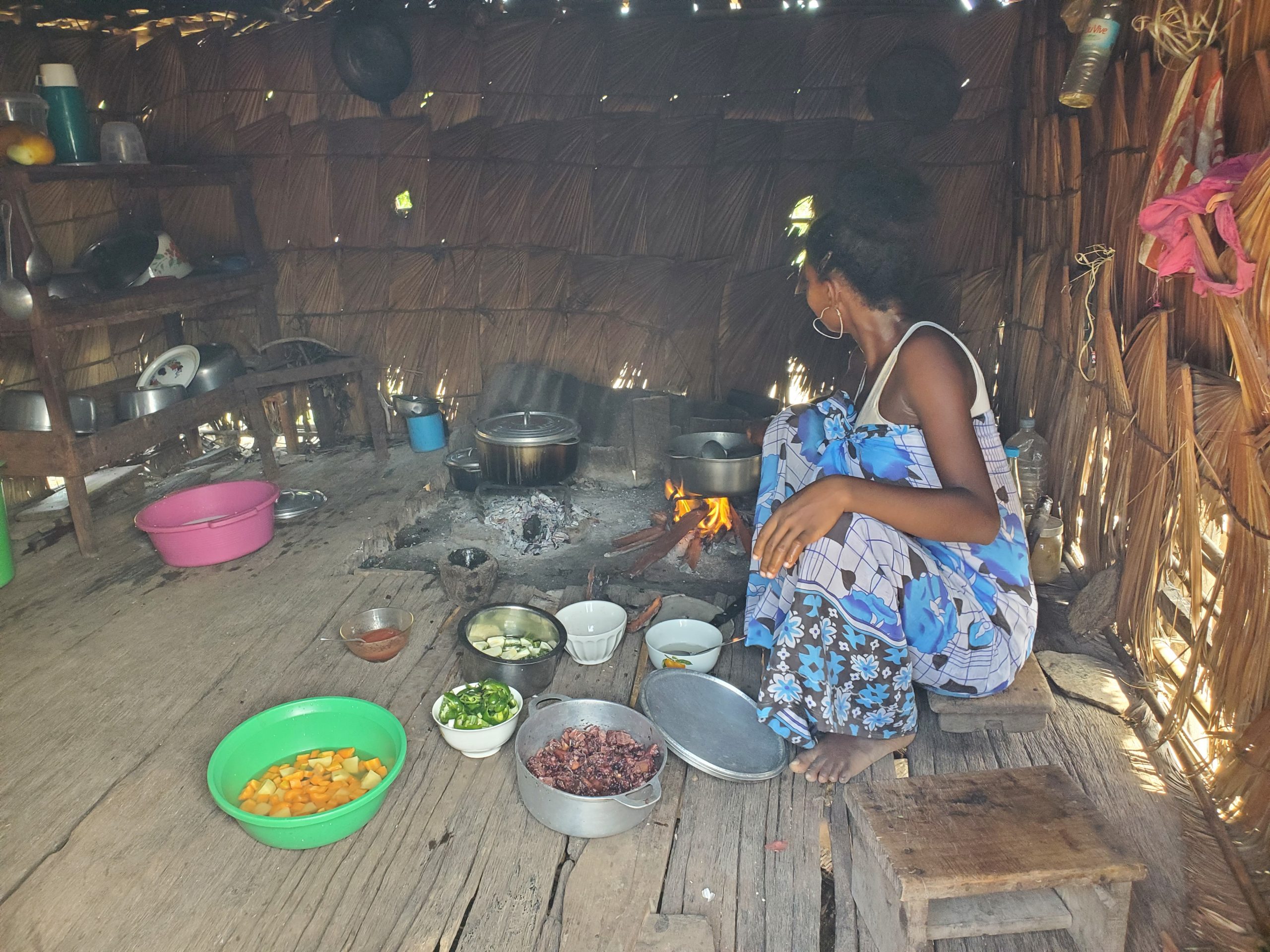
THE SOLUTION
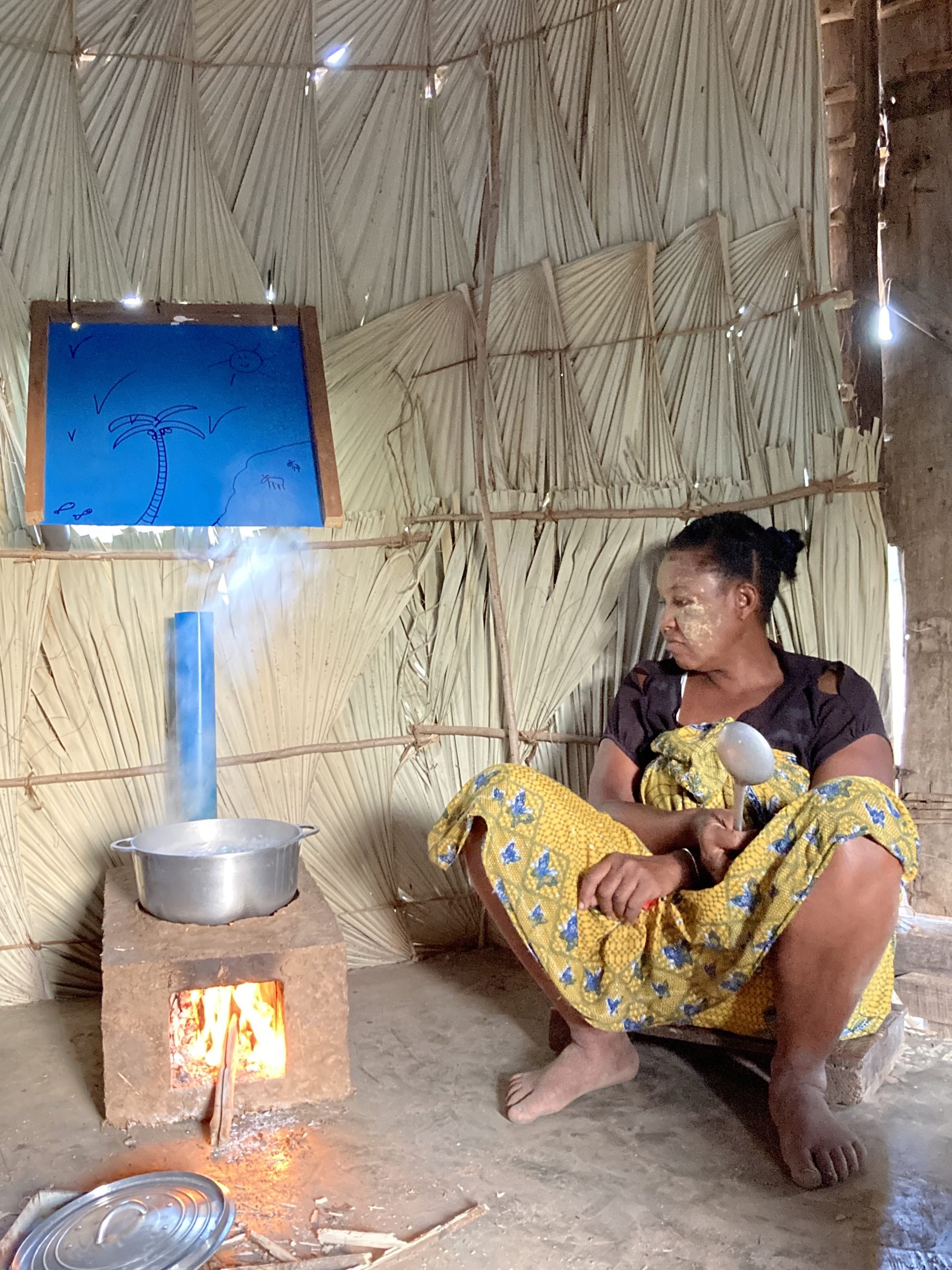
Scientific studies prove that indoor air quality is mainly determined by three factors: cooking method, fuel type and room ventilation.
Based on these studies, we have designed an improved cookstove that expels combustion fumes, reduces fuel consumption, and minimizes household accidents, providing a more efficient, cleaner, cost-effective, safer solution.
Our cookstove is designed and constructed using mud, a locally available and low-cost material. This way, the beneficiaries will be able to repair and maintain their cookstoves independently, ensuring long-term sustainability. The stove is equipped with a chimney, which, in combination with a window that serves as a hood, allows for the extraction of harmful combustion fumes.
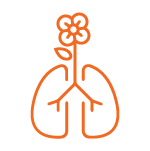
cleaner
The exhausts extraction system ensures a healthy and clean environment during the food cooking process.

more efficient
Improved biomass combustion allows to save up to 50% of fuel with respect to traditional open-fire cooking.

safer
In improved cookstoves, the combustion process occurs within a combution chamber, thus reducing the risk of domestic accidents compared to traditional cooking methods.
- Improvement of indoor air quality, safety and hygiene conditions of cooking practices.
- Reduction of environmental and social impacts related to wood harvesting and coal production.
- Raising awareness of local communities on problems related to traditional cooking methods and encouraging them to adopt virtuous behaviors.

The activities
The complexity of the Zero Carbon project and its multiple objectives, require a temporal breakdown of its timeline into phases.
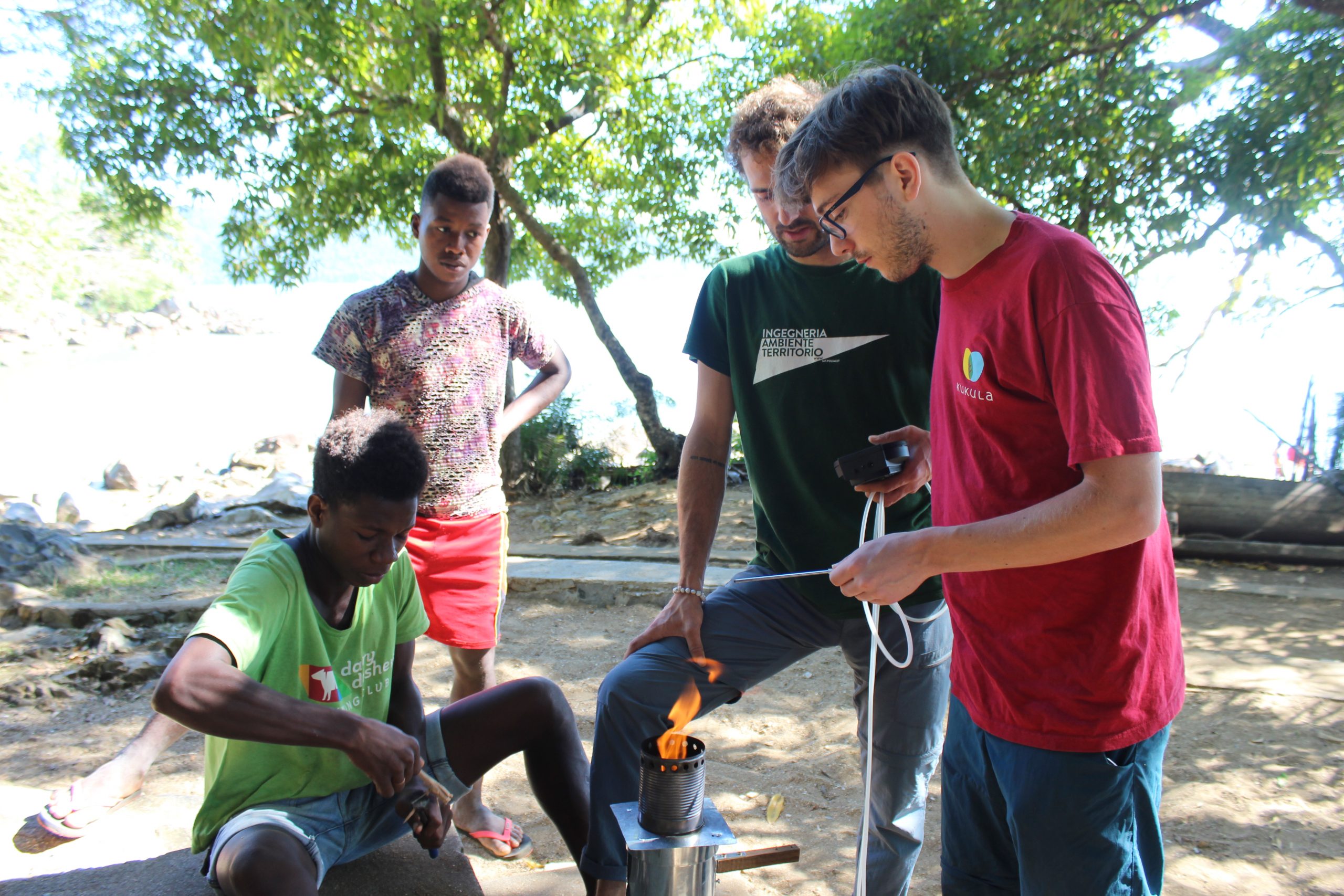
2019
feasibility analysis and prototype
In May, the Zero Carbon project starts, spanning between Italy and the island of Nosy Komba. Following a preliminary on-site analysis of the context, we have begun to study and build various prototypes of improved cookstoves, testing different solutions and locally available materials.
2022
THE MUD IMPROVED COOKSTOVE
After two years of absence in Madagascar due to Covid-19, we finally returned to the field and developed a new improved cookstove, built with mud, that best suits the extremely rural and isolated context of the Mitsio Islands.
2023
THE FIRST IMPROVED COOKSTOVES AND WINDOWS
Thanks to the support of Politecnico di Milano and experts in the clean cooking sector, we have finalized the prototype and started building the first cookstoves and windows inside the kitchens of the village of Ampanitsoha.
2024
THE PROJECT SCALES UP
The goal is to collaboratively build improved stoves and chimneys in all the kitchens of the village together with the local community and to introduce and spread the solution in neighboring villages as well.




